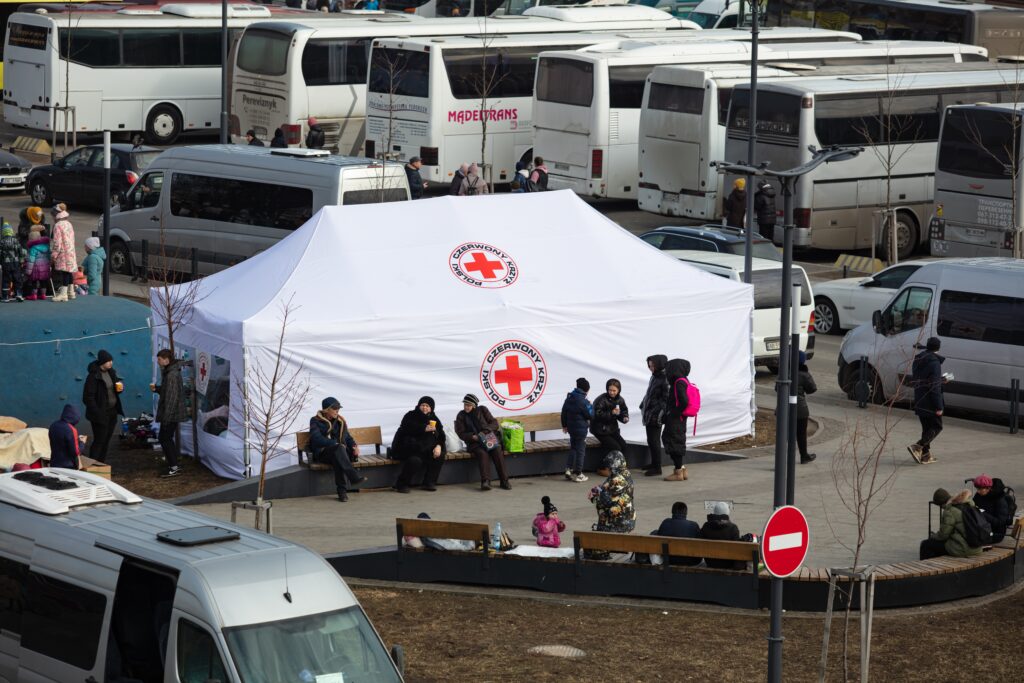Between summer 2022 and March this year Peaceful Change initiative (PCi) worked with Italian humanitarian and development organisation WeWorld to strengthen the conflict sensitivity of its work in Northern Mozambique.
Mozambique’s Cabo Delgado region has been experiencing conflict since 2017. Militants aligned to Islamic extremist groups have killed thousands and displaced more than a million people. Whilst some of these militants came from neighbouring countries, Mozambicans also joined in significant numbers, motivated by their socio and economic marginalisation as inhabitants one of Mozambique’s poorest regions. Recent discoveries of natural resource wealth in Cabo Delgado are perceived to have benefitted only the richest elites, further exacerbating local grievances.
Against this backdrop, local and international humanitarian and development agencies have been continuing to deliver much-needed support to communities across Cabo Delgado. This support has included supplying food aid, building shelter for displaced people and supporting healthcare and education. However, delivering humanitarian and development work in conflict is a complex endeavour, fraught with the risk of exacerbating tensions by helping one group over the other, or having materials and supplies diverted by armed groups or powerful elites.
We work with organisations delivering humanitarian and development projects in conflict situations, supporting them to minimise the potential for their projects to do harm, and to take advantage of opportunities to deliver their work in a way that actively reduces tensions.
We have been supporting WeWorld to strengthen its conflict sensitivity since 2021, including developing a global Conflict Sensitivity Toolkit. Our work with WeWorld’s team in Cabo Delgado has included developing an understanding of conflict dynamics and conflict sensitivity risks in the communities with which WeWorld is working. We also support WeWorld’s project team to prioritise, mitigate and monitor these risks using our Conflict Sensitive interactions matrix.
Three key takeaways from our conflict sensitivity work in Mozambique
Local staff embedded in communities were invaluable in helping WeWorld understand the context and how to manage risks.
WeWorld had recruited local mobilisers who lived locally to the communities with which they worked and who were tasked with getting to know the people with which they were working, visiting communities daily and spending time speaking to project participants and local leaders.
The knowledge and relationships that local mobilisers brought was essential in helping Mozambican and international staff based in the regional headquarters of Pemba understand how the project may be received in the communities, what potential risks and pitfalls would be and how to mitigate these. Providing local mobilisers with the space to give their perspective and be part of redesigning activities to mitigate risks was a valuable part of reflection and planning sessions.
Having the space for teams to critically reflect on their work is an essential part of being conflict sensitive.
Conflict sensitivity is often approached in a very technical way, with a focus on using various tools to produce outputs (analyses, matrices etc). These tools are valuable to stimulate thinking, but it was in joint reflection sessions where the real work of deepening our conflict analysis and developing ideas for how exactly activities should be implemented or adapted happened.
It is hard to capture all the nuance of these discussions in an analysis report or a matrix, but the process itself is essential to bring a team together around understanding and implementing a project in a conflict sensitive way. In a humanitarian context like northern Mozambique, space for organisations to reflect and regroup is not a given, it needs to be created and external facilitators can be useful in that respect.
Conflict sensitivity requires a whole-of-system approach.
Our work with WeWorld in Mozambique to date has focused on the conflict sensitivity of a specific project in Cabo Delgado, working with that project team. However, there are barriers to being conflict sensitive that a project team alone cannot remove. This can include how projects are designed in the first place, whether there is organisational appetite for making the difficult decisions to adapt or completely transform approaches, the flexibility of donors and how committed they are to being conflict sensitive.
Conflict sensitivity is something that all levels and departments of an organisation need to understand, including procurement and communications teams. It is also critical that donors operating in conflict contexts understand conflict sensitivity and that this is reflected in how they design, select and monitor projects.
Next steps: expanding our conflict sensitivity work to new regions
Our work with WeWorld will continue, expanding to cover WeWorld teams in Kenya and Tanzania under an EU-funded project that aims to strengthen youth participation in peacebuilding in the Swahili Coast region. PCi continues to call for and support greater attention to conflict sensitivity amongst agencies working in Northern Mozambique.
Learn more about why we and how we are working in Northern Mozambique on this page.

